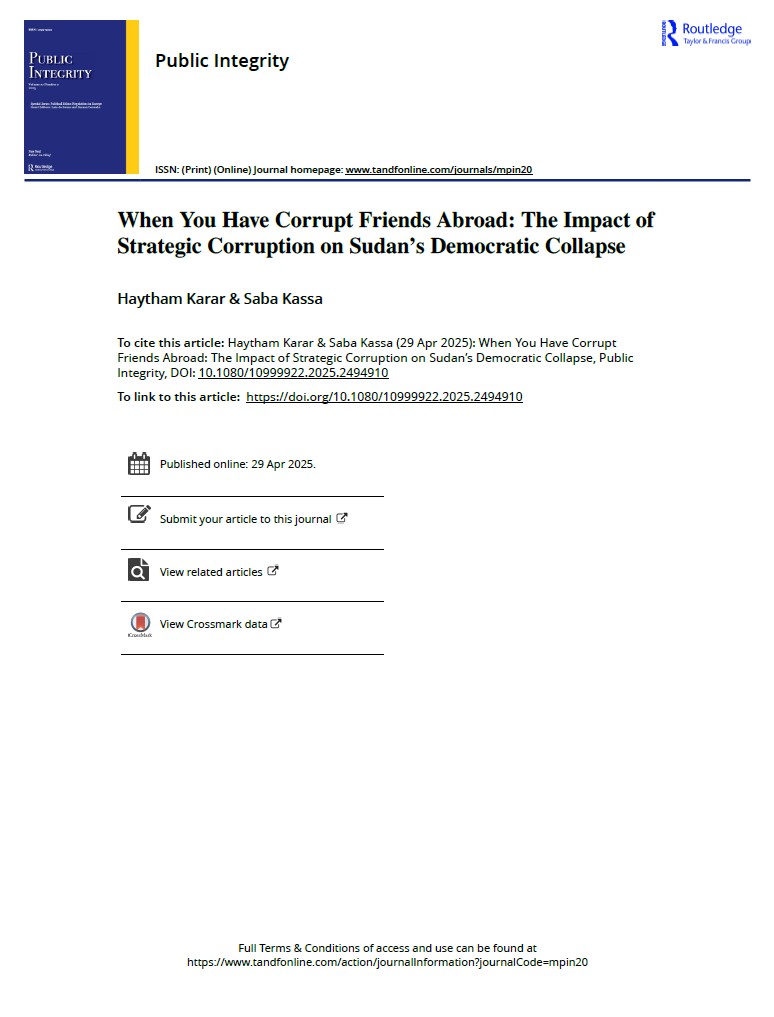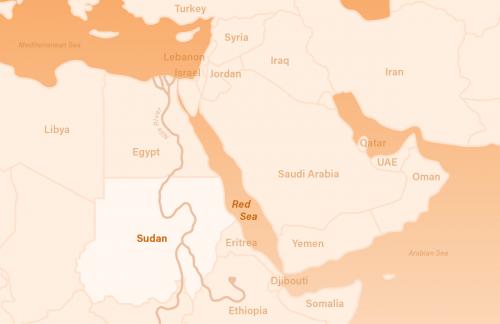When You Have Corrupt Friends Abroad: The Impact of Strategic Corruption on Sudan’s Democratic Collapse
A new peer-reviewed journal article looks into how corruption undermines democracies, with a specific focus on a context of weak governance.
Abstract
Much attention on strategic corruption has focused on how corruption can be weaponised to undermine democracy. This article takes a different angle, namely to understand this phenomenon from the perspective of the country that is the “target” of strategic corruption in a context of weak governance. The focus is on Sudan, where, in 2019, the civilian-military government led by Prime Minister Hamdok began an ambitious transition to democratic governance and adopting anti-corruption reforms, but this transition ended in 2023 with state collapse and conflict.
Using desk research and media analysis, the article explains the key points of contention among key actors and how external actors, through strategic corruption, became part of this story, ultimately helping to perpetuate the negative downward cycle.
Critically, rather than framing countries in the Global South as passive victims of strategic corruption, the analysis shows that political actors are active antagonists and, in their efforts to resist reform, build alliances with external actors who can help them achieve their goals. What is exchanged is access to valuable resources, which fuels corruption and undermines governance.
Suggested citation
Karar, H., & Kassa, S. (2025). When You Have Corrupt Friends Abroad: The Impact of Strategic Corruption on Sudan’s Democratic Collapse. Public Integrity, 1–14. https://doi.org/10.1080/10999922.2025.2494910
Links and other languages


